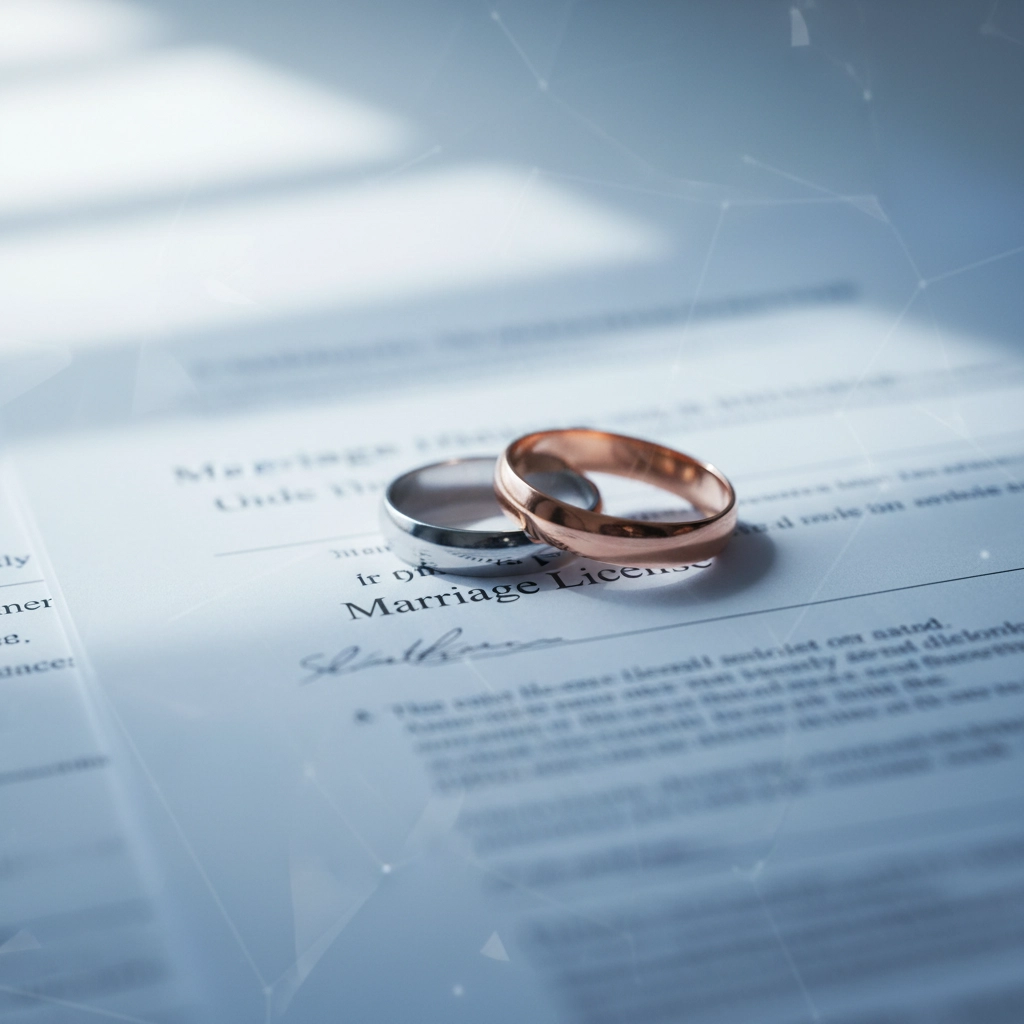Same-Sex Marriage Laws by State in 2025: What Virginia Couples Need to Know Before the Supreme Court Rules
- brookthibault
- Nov 4, 2025
- 5 min read
The landscape of same-sex marriage rights in 2025 sits at a critical crossroads. While the 2015 Supreme Court decision in Obergefell v. Hodges established marriage equality as the law of the land, recent legal challenges and shifts in the federal judiciary have created uncertainty for LGBTQ+ couples nationwide. For Virginia residents, this uncertainty is compounded by the state's unique legal situation that demands immediate attention.
If you're a same-sex couple in Virginia, understanding your current rights and the potential threats ahead isn't just important: it's essential for protecting your family and future.
Virginia's Complex Legal Reality
Same-sex marriage has been legally recognized in Virginia since October 6, 2014, when the U.S. Supreme Court declined to hear an appeal of the Fourth Circuit Court of Appeals ruling. This makes Virginia one of the earlier states to recognize marriage equality, even before the nationwide Obergefell decision.
However, Virginia faces a unique constitutional contradiction that sets it apart from most other states. Despite same-sex couples being able to legally marry and enjoy full marriage rights in practice, Virginia's state constitution still contains a 2006 amendment that explicitly prohibits same-sex marriage.

This creates an unusual legal position where federal law supersedes Virginia's outdated constitutional language. Governor Terry McAuliffe signed an executive order immediately following the Supreme Court's 2015 Obergefell decision, granting same-sex couples the same rights and benefits as heterosexual couples under Virginia law. The General Assembly also repealed the statutory ban on same-sex marriages in 2020.
But here's the critical issue: that constitutional ban remains on the books, creating what advocates describe as a "stain on our state's most revered document." This isn't just symbolic: it represents a real threat if federal protections disappear.
The Proposed Constitutional Amendment
Virginia lawmakers have recognized this vulnerability and proposed a constitutional amendment (SJR 249) that would formally remove the discriminatory language and create an affirmative right to marry regardless of sex, gender, or race. This amendment also includes important protections for religious organizations and clergy who wish to refuse performing marriages based on their religious beliefs.
The amendment passed the House of Delegates in February 2025 with a vote of 58-34, supported by 51 Democrats and seven Republicans. This bipartisan support demonstrates growing acceptance of marriage equality across party lines in Virginia.
However, the amendment process requires one more legislative approval in January 2026 before going to voters in the 2026 election. With control of Virginia's lower chamber being contested, the amendment's future remains uncertain.
The Supreme Court Threat: Why This Matters Now
The urgency surrounding Virginia's constitutional amendment intensified dramatically in August 2025 when Kim Davis, the former Kentucky county clerk who refused to issue marriage licenses to same-sex couples, petitioned the U.S. Supreme Court to overturn Obergefell v. Hodges.
This petition represents a serious and credible threat. The current conservative composition of the Supreme Court has already demonstrated willingness to overturn established precedents, most notably with the 2022 reversal of federal abortion rights. Legal experts and advocacy groups are taking Davis's petition seriously, recognizing that established rights aren't necessarily permanent.

If the Supreme Court were to reverse Obergefell, states with constitutional or statutory bans on same-sex marriage: including Virginia: could potentially reimpose those bans immediately. This would create legal chaos for married same-sex couples and prevent new marriages from taking place.
Narissa Rahaman, executive director of Equality Virginia, captured this concern perfectly: "That sent the message that a precedent set by the Supreme Court wasn't necessarily set in stone."
The National Landscape: What Other States Face
While comprehensive 2025 data for all 50 states isn't readily available, the general pattern across America shows significant variation in state-level protections for same-sex marriage. States can be broadly categorized into three groups:
States with Strong Protections: These states have removed discriminatory language from their constitutions and/or enacted affirmative marriage equality laws. These states would likely continue recognizing same-sex marriages even if Obergefell were overturned.
States with Constitutional Bans Still on the Books: Like Virginia, many states retain constitutional amendments banning same-sex marriage that are currently superseded by federal law. These states face the highest risk if federal protections disappear.
States with Uncertain Status: Some states have mixed legal frameworks or haven't clearly addressed the issue at the state level, creating ambiguity about what would happen without federal protection.
Your Rights as a Virginia Couple Today
Despite the constitutional contradiction, same-sex married couples in Virginia currently enjoy comprehensive legal protections and privileges:
Marriage Recognition: Virginia recognizes same-sex marriages performed both in-state and in other states, giving you full legal standing regardless of where you married.
Divorce Rights: Same-sex couples can file for divorce following identical procedures as heterosexual couples, including the standard requirement that one party must reside in Virginia for six months prior to filing.
Property Rights: Virginia's equitable distribution laws apply to same-sex couples using gender-neutral language, ensuring fair division of marital assets.
Parental Rights: Same-sex couples have equal adoption rights and parental recognition under Virginia law.

However, there's one important consideration for long-term couples: Virginia's equitable distribution laws may only consider property acquired after your legal marriage date as "marital property" subject to division. If you cohabitated for years before same-sex marriage became legal, this could affect property division in a divorce. Couples in this situation should consider executing pre-marital or post-marital agreements clarifying what constitutes marital property.
What You Can Do to Protect Yourself
The uncertainty surrounding federal protections makes it crucial for Virginia same-sex couples to take proactive steps:
Document Your Relationship: Ensure you have comprehensive documentation of your marriage, including certified copies of your marriage certificate stored in multiple safe locations.
Review Your Legal Documents: Update wills, power of attorney documents, healthcare directives, and beneficiary designations to reflect your marital status and protect your rights.
Consider Additional Protections: Explore domestic partnership agreements, property agreements, or other legal documents that could provide additional security for your relationship and assets.
Stay Informed: Monitor the progress of Virginia's constitutional amendment and any developments in the Supreme Court case.
Get Involved: Contact your state representatives to express support for the constitutional amendment. Public pressure can influence legislative outcomes.
The Timeline Ahead
Understanding the timeline of potential changes helps you prepare:
January 2026: Virginia's legislature will vote again on the constitutional amendment. This vote is crucial for getting the amendment on the ballot.
November 2026: If the legislature approves the amendment, Virginia voters will decide whether to remove the constitutional ban and create affirmative marriage rights.
Ongoing: The Supreme Court could potentially hear Kim Davis's petition at any time, though the Court typically announces which cases it will hear well in advance.
Why Professional Legal Guidance Matters
While this overview provides important context, every couple's situation is unique. The intersection of federal and state law, combined with individual circumstances like property ownership, children, and estate planning, creates complexity that requires personalized analysis.

If you're concerned about protecting your marriage and family rights, consulting with an experienced family law attorney can help you understand your specific situation and take appropriate protective measures. At Coastal Virginia Law, we understand the unique challenges facing LGBTQ+ families and can help you navigate these uncertain times.
Moving Forward with Confidence
While the legal landscape for same-sex marriage faces unprecedented uncertainty, knowledge empowers action. Virginia couples who understand their current rights and potential risks can take meaningful steps to protect their families and relationships.
The fight for marriage equality didn't end with Obergefell: it evolved. By staying informed, taking protective legal steps, and supporting state-level protections like Virginia's proposed constitutional amendment, you can help secure not just your own rights, but the rights of LGBTQ+ families throughout the Commonwealth.
Remember: your marriage is valid, your rights are real, and with proper planning and advocacy, you can navigate whatever legal challenges lie ahead. The key is staying proactive rather than reactive in protecting what matters most to you and your family.


Comments